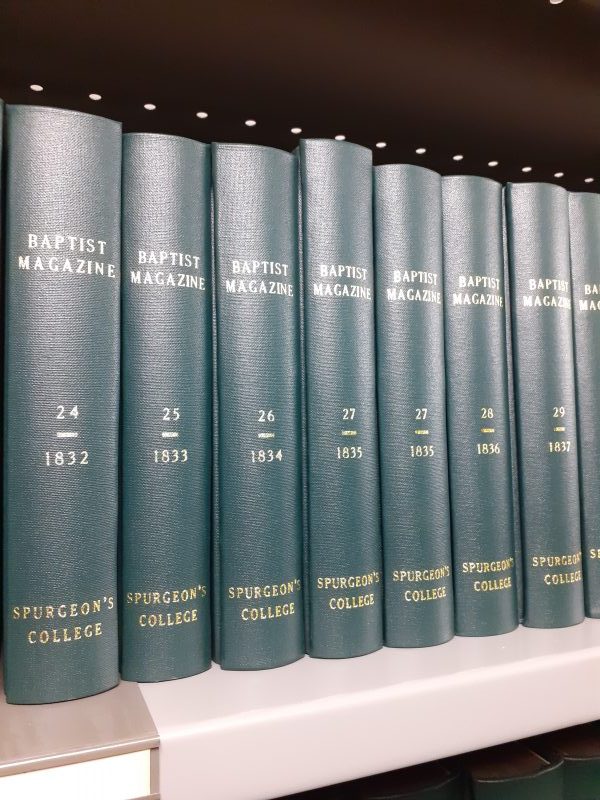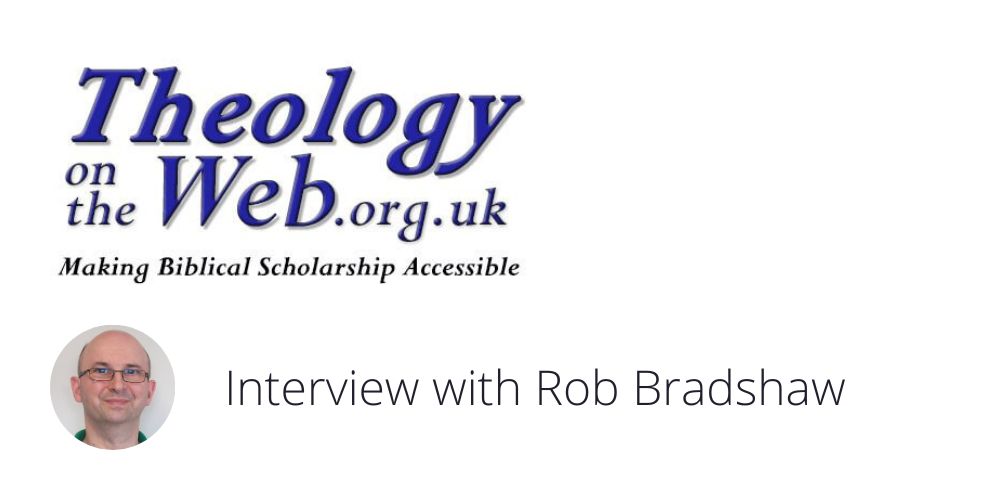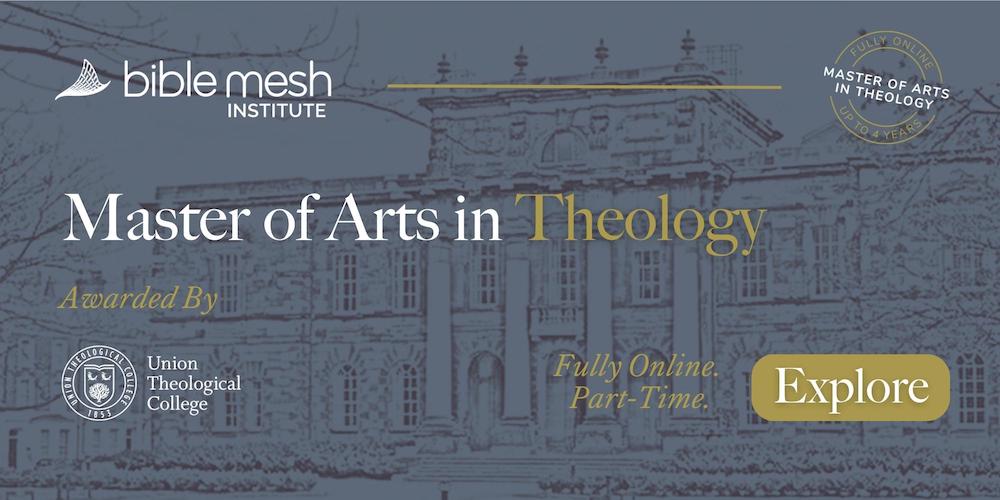We recently met with Rob Bradshaw to hear more about his ministry—Theology on the Web. This outstanding resource is a curated site of open-source or donated resources in biblical and theological studies. It’s a treasure trove of historical works, and one that we often use as research references for our students.
We asked Rob a number of questions to find out more about his background, the vision behind Theology on the Web, and how people can support his work.
Q. To begin with, tell us about your background and introduction to theology?
I became a Christian while I was studying forestry at Bangor University in North Wales. Very soon afterward I felt God’s call on my life to serve him in overseas missions and after I graduated, went out to Nepal to work for a year with the United Mission to Nepal.
Whilst I was there, I realised that I needed further Bible training if I was going to be able to share the Gospel effectively. This led me to do a three-year Bible College course on my return home. I really enjoyed studying theology and found that having already done a degree, the process of researching and writing essays was second nature and that it also enabled me to teach other students how to study.
Following Bible College, I worked for a time with a church in Vancouver, British Columbia and then in the bookshop in Liverpool Cathedral, which introduced me to the world of publishing. In 2000 I began work for a charity that supported evangelistic projects and married Michelle, who is also a graduate in theology.
Q. What was the vision behind Theology on the Web, and how do it begin?
In the late 1990s I had launched my first website which hosted some of the research I had done on early church history. I quickly found that there was an interest in this, particularly in the bibliographies that I had provided. So, in 2001 I launched my first site in what is now known as “Theology on the Web”, biblicalstudies.org.uk.
This initially hosted bibliographies and some of my own essays. It was at this point that I made an important decision about the direction the ministry would take. Having worked overseas I realised the huge wealth of resources that are available in the United Kingdom to anyone who wants to study theology. You can, quite literally, get access to any book or theological article that has been published in the last hundred years. This is not the case in most of the rest of the world. In many countries ministers work with little training and no books other than the Bible to guide them. The increasing use of the Internet meant that this need might be met by providing books and articles in digital format. So, into order meet this need, the vision for “Theology on the Web” was born: an online theological library that provides free access to the best theological books and articles I could make available.
In the early 2000s I began writing to editors or theological journals and the authors of out-of-print books and asked for permission to scan and place selected material online. I was delighted with the positive response I received and the numbers of visitors to the websites increased. New websites were added to cover church history, missions, biblical archaeology and theology.
As interest in the sites grew, I began to get requests from editors to scan entire journals and host them, which in turn led to further such requests. One of the early projects was to digitise the articles of Professor F.F. Bruce, which resulted in more than 500 of his articles being published online.
Q. What are some of the unique features and popular content that serve Christian pastors and leaders?
When asked, visitors to the Theology on the Web sites have said that access to theological journals is the most valuable service that the sites provide. Most theological journals are now behind paywalls and accessible only to those attending subscribing Colleges and Universities. This is a not only a problem for those studying in the majority world, who cannot afford access, but is a problem even for ministers in the UK and the USA, who often lose access to online theological resources after graduation.
The good news is that Theology on the Web now hosts material from over 90 theological journals, some of which are not available anywhere else, such as The King’s Theological Review. Because the sites were envisioned as serving an international audience, they host journals from all around the world. For example, the Caribbean journal of Evangelical Theology which had ceased production, but after it was digitised, the editor revived it as an online-only journal that publishes a new issue each year.
After journals, access to biblical commentaries is most valued by site visitors. Each book of the Bible has its own bibliography (e.g. the Gospel of Luke that includes a list of commentaries, both those in-copyright and those in the public domain. This page provides a list of series of commentaries that are available for download. By approaching publishers and authors an increasing number of in-copyright, but out-of-print commentaries have also been added by permission.
The scanning of the books and articles was done on a flatbed scanner until relatively recently. However, a recent innovation has been the use of a mobile phone with a 108MP camera to carry out overhead scanning. Using this it has been possible to digitise several series of historic Baptist journals and it is possible that entire runs of these journals will be placed online for the first time. This video shows a volume of The Baptist Magazine in the process of being photographed.

The sites have continued to develop over the last 23 years, now receiving over 2.5 million visitors a year from around the globe. In 2019, when I was made redundant from my job, the websites provided a quite unexpected benefit. On hearing that I was available, I was approached by the management team of Spurgeon’s College who offered me the post of Librarian of one of the largest theological libraries in the United Kingdom. They reasoned that if I was able to create and maintain an online library, then I would be able to manage a physical one as well!
Q. How can someone help and support the work of Theology on the Web?
There are two ways that those visiting Theology on the Web can help it to grow. The first is to tell others about the content they find there, by sharing the links on social media and by making their ministers, college professors or missionary friends aware of it.
The second is to consider supporting the sites directly. The majority of the scanning, web design and website management, I do myself, so the site overheads are low compared to other websites. Despite receiving such a huge number of visitors, it has always been difficult to find individuals who would be willing to support the sites on a regular basis. Without this regular support it has been very difficult to cover the increasing costs – web hosting is now three times what it was two years ago. So, I am asking supporters to consider donating a small amount each month through Patreon or Buy-Me-A-Coffee. This will help enable this online library of over 50,000 theological articles and thousands of books to continue to be made available free of charge.
We’d like to thank Rob for taking the time to share the background and vision of Theology on the Web. This really is an outstanding resource for students of theology and biblical studies. We’d encourage you to support his work!

